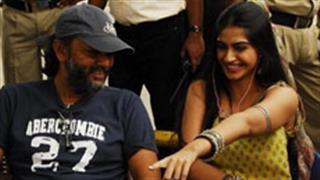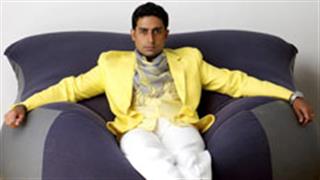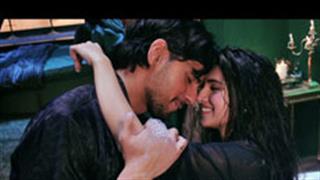Delhi 6 is a journey to discover this country. When I started this film, I didn't know why I was making it, but through this journey, I found out the reason for doing this.
You can say that Delhi 6 is about the people of our country, the place, the beliefs, the disbeliefs, their contrast in religion, how they live in harmony, how they live in conflict, the whole Hindu - Muslim thing, the caste system in our country, the marriages, the dowry, etc. and yet Delhi 6 works. Bureaucracy prevails but yet there is something great about it.
Rakeysh Mehra Why do you think such things are still prevalent?
This change has triggered with the turn of the century and I always wanted to know why such things are happening. It's a funny place, this country is.
Schools will have no books, if there are books, there are no teachers, if there are teachers, there are no exams, no results, if you pass out from your college, you won't get a job, you get married, find a house where there is tap but no water.
You are back where it all started from. How the hell does the country work. Along the line we discovered that it's the people. I didn't touch up on the writing process but as we were closing towards the final draft, we realized that there are too many problems which a common man himself brings up.
Was making Delhi 6 a tougher challenge than Rang De Basanti?
No questions about that. Yes, I was very nervous attempting Delhi 6. Cinematically, if Rang De was kinder garden then I am in first standard now. I can feel the growth.
I hope when I come out of this film (after a pause) and I don't know when I'll come out. Maybe couple of years down the line when I look at it again, it will all fall in place for me. As of now, there is no objectivity in making Delhi 6.
Will Delhi 6 weave the magic like what RDB did?
I don't know. There are no expectations. We haven't structured the film in a way that it'll walk the red carpet across the world. Though it'll be wonderful to get an international recognition and at the same time, our Indian recognition.
More importantly, if it can strike a chord with the audience, that'll be great. I have departed totally from Rang De. There is not a single thought process that'll echo.
Somewhere subconsciously, I'll be trying to tell the same story in a different way, even if try not to. Something or the other will seep into it. The story of Delhi 6 permitted me not to repeat myself.
 Why is there a mirror on the audio CD cover of Delhi 6?
Why is there a mirror on the audio CD cover of Delhi 6?Is that giving away an important message? It does. The film tells us to look at yourself and so the mirror. The pre-climax gets triggered with the mirror. It's not just look at yourself alone though. We look for so many things.
We look for God in our own way. Some look for Ram, some for Allah, some for Jesus, some for Krishna, etc. Somewhere it's got that kind of a 'sufiana' flavour to it.
Abhishek has an accent in the film. How was the preparation process?
It was Abhishek's process. He worked on the body language and the American accent. Everybody worked on their individual accents. For Abhi, it came very naturally. In fact, he barely speaks through the film. He hardly has ten lines in the film. It's his voiceover which takes us through the film.
Aren't there more mosquitoes interested in our talk today?
I'm sure they are. They must've been snubbed by the pigeon which I have shown on the posters of Delhi 6 (laughs)
The same time zone of Rang De before release and Delhi 6 before release. Can you tell the difference?
During Rang De, I was blank. Now I am blanker (laughs). If Rang De was a political drama, Delhi 6 is a social drama. In terms of expectations, Rang De was a tough act to follow and sometime, your success becomes your biggest enemy.
Everywhere I go, people recognize me and talk about Rang De Basanti. Now we did some test screenings of Delhi 6 and I found out that this is the first time I've sketched romance. That's a major difference.
Isn't A.R. Rahman making your job tough by not being there in the crucial and a critical stage of the films release?
Rahman called me half an hour after he received the award at the BAFTA's and said, "I am feeling so guilty by not being there. Anything you feel irritated about the background score, just change that". He just returned last night from the U.S.
He landed in Chennai, was talking to his engineers and was so worried about the music of Delhi 6. In fact, the background score is much better than the songs in Delhi 6. Background is the film. What we tried for the background was that we didn't score for the shot.
We just sat and spent the whole month of December and not a single sound came out. Everybody was getting worried. Then Rahman won the Golden Globe, came back and he again sat and bits and bits happened.
At one point, I and Rahman were discussing to postpone the release date of Delhi 6. We still couldn't crack the background. So we decided to crack theme on the subject of the film. Not on some particular scene. Rahman went into a different world all together after that. He played all the instruments that were available to him and just went for it.
 He came up with ten themes and at one point we were confused of what to use. He is a
true magician. When we put the theme with the scenes it would start and end perfectly. Can you believe it?
He came up with ten themes and at one point we were confused of what to use. He is a
true magician. When we put the theme with the scenes it would start and end perfectly. Can you believe it?Do you think you are losing your creativity by making one film every three years? I mean, if you made three films in three years, it could've been a much creative process.
I am happy to make one film in a lifetime. Filmmaking is neither a race nor a number game. Though one thing (film) is stretching too much (laughs).
I write, I direct, I produce. If I had sealed and bound scripts and good scripts, that will not quench my thirst! It has to be something cool which we can experiment with. Visually, the director is the writer.
Then I have to produce because the kind of films I want to make, it's impossible to find a producer. Rang De Basanti took three to four years to find a producer till we roped in Aamir and in turn Aamir roped in Rahman.



















